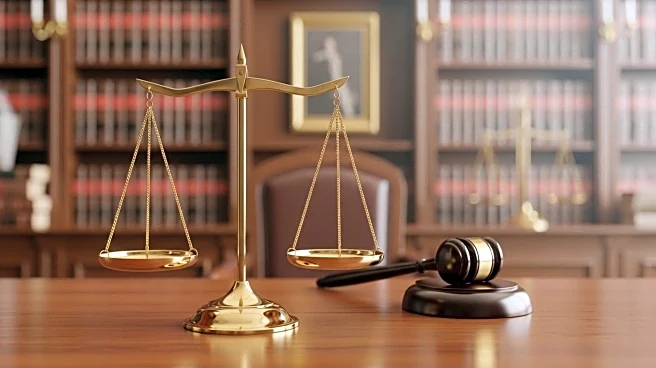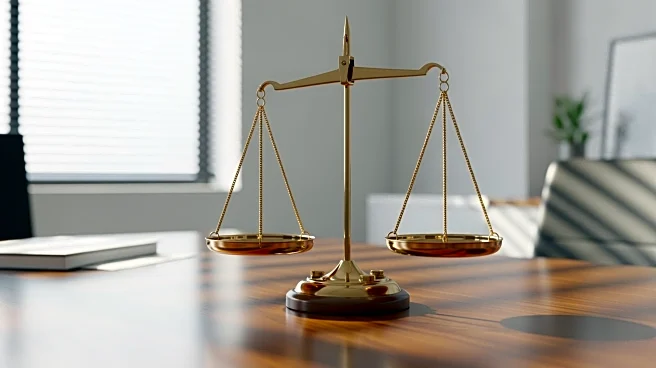What's Happening?
Elizabeth Yusi, a top prosecutor in Virginia, has informed colleagues that she plans to decline seeking charges against New York Attorney General Letitia James, despite intense pressure from President Trump. Yusi, who oversees major criminal prosecutions in the Norfolk office of the Eastern District of Virginia, sees no probable cause for mortgage fraud allegations against James. Trump had previously installed Lindsey Halligan as interim U.S. attorney after firing Erik Siebert, who resisted charges against James and former FBI Director James Comey. Halligan has since indicted Comey for allegedly lying to Congress. Trump has publicly called for the prosecution of James, labeling her actions as a 'witch hunt' against him.
Why It's Important?
This development highlights the ongoing conflict between career prosecutors and political pressures from the Trump administration. The refusal to prosecute James underscores concerns about the politicization of the Justice Department, where legal decisions may be influenced by political motives rather than evidence. The broader implications include potential impacts on public trust in the justice system and the independence of legal institutions from political interference. The case against James, lacking sufficient evidence, raises questions about the integrity of legal processes under political influence.
What's Next?
Yusi plans to present her conclusion to Lindsey Halligan, the interim U.S. attorney, in the coming weeks. The outcome of this presentation could determine whether Yusi faces repercussions for her resistance. Meanwhile, federal prosecutors in Virginia are bracing for potential firings as a result of their stance against prosecuting James. The situation may lead to further scrutiny of the Justice Department's actions and the administration's influence over legal proceedings.
Beyond the Headlines
The ethical dilemma faced by prosecutors in this case highlights the challenges of maintaining legal integrity in politically charged environments. The potential firing of prosecutors for resisting political pressure could set a precedent for future cases, affecting the morale and independence of legal professionals. This development may also contribute to ongoing debates about the separation of powers and the role of the executive branch in judicial matters.









